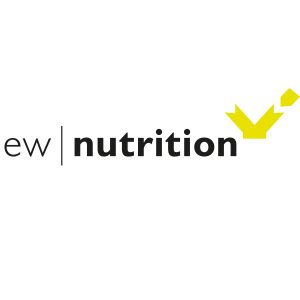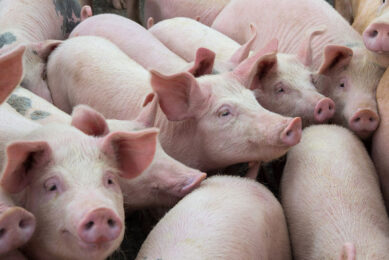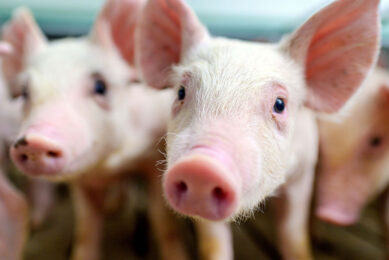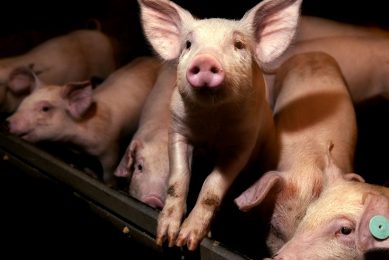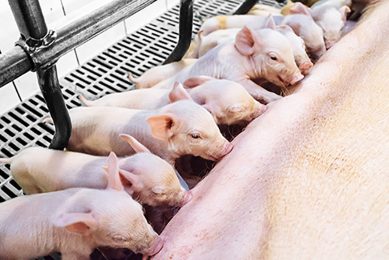Strategies to control Strep suis in swine
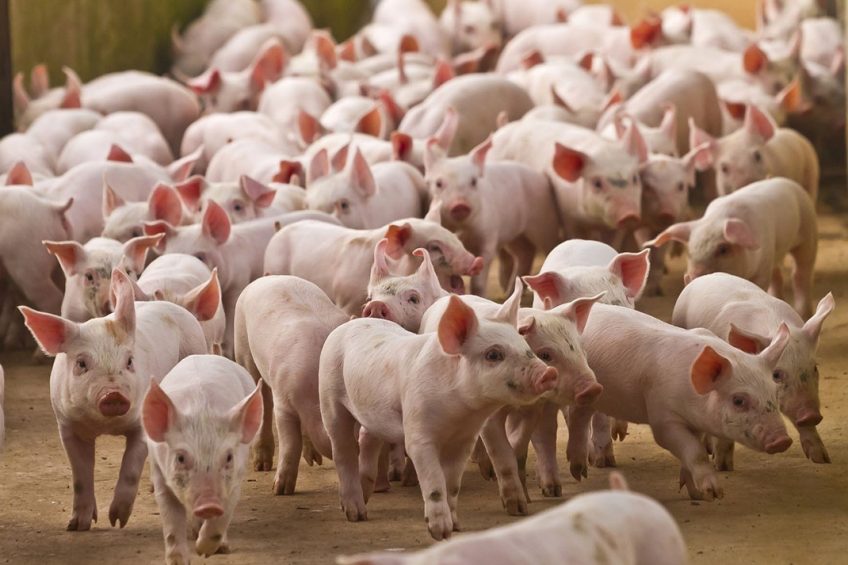
The pathobiont microorganism Streptococcus suis can cause diseases such as septicemia, meningitis, pneumonia, endocarditis, and arthritis. Worldwide economic losses and the threat to animal and human health render S. suis control a pressing priority. Yet we have to stop relying on antibiotics to avoid further development of antimicrobial resistance.
In addition to general environmental conditions such as temperature variations, ventilation, air quality, and stocking densities, successful strategies focus on 5 areas:
 Biosecurity
Biosecurity
Biosecurity here encompasses genetic research to reduce bacterial colonisation in animals and internal measures to curb transmissions and coinfections (e.g., with PRRSV, Swine Influenza virus, Bordetella bronchiseptica, or E. coli), which constitute a significant virulence factor for S. suis infections.
 The pre-weaning period
The pre-weaning period
As piglets get infected at birth already, systemic (feed-based) or local (vaginal) antibiotics are routinely administered. Set aside inconsistent results, antibiotic prophylaxis in young animals has been found to reduce bacterial diversity in the animals’ microbiome (alpha diversity), which is related to a subsequent proliferation of pathogens.
To reduce infections in the farrowing rooms, producers need to consider the colostrum distribution between litters, “processing” measures (e.g., tail docking), and iatrogenic transmission through medical equipment.
 The post-weaning period
The post-weaning period
In the post-weaning period, social (mixing of litters), nutritional (transition from milk to solid feed), and pathogenic stressors coalesce. Maternal immunity declines while innate immunity is not yet developed, making piglets susceptible to horizontal disease transmission.
Management parameters include a correct and homogeneous weight/age ratio at weaning, sufficient consumption and optimised composition of post-weaning feed, and the appropriateness of housing facilities.
 Treatments and vaccination
Treatments and vaccination
Curative antibiotics need to be used judiciously: early detection is critical, affected animals must be isolated, and parenteral antibiotics should be combined with high-dose corticosteroids.
S. suis’ high genetic diversity and sugar-based envelope hamper vaccine development. To compensate for inactivated vaccines’ low levels of antibodies at mucosal level is not commercially practicable. Live attenuated vaccines might re-develop virulence, an unacceptable risk. Autogenous vaccines, which are based on farm-specific suspected serotype(s), constitute an alternative for some contexts, but with variable results.
There is encouraging research, for example, on conditionally essential genes for S. suis infection, but we are still far away from a universal cross-protective vaccine.
 Hygiene
Hygiene
Bearing in mind S. suis’ ability to produce biofilms, impactful hygiene measures include washing breeders before they enter the farrowing room and careful piglet handling, e.g., avoiding injuries during teeth cutting and disinfecting the umbilical region.
New nutritional solutions target the microbiome
A healthy gut microbiome is characterised by high alpha diversity. Diversity between animals should be low (beta diversity) and one also wants to promote the presence of bacteria that support digestive homeostasis or even produce bactericidal substances against S. suis.
S. suis also lives in pigs’ saliva. This allows for nutritional interventions that reduce the availability of S. suis’ favourite nutrients (carbohydrates or starches) while considering other factors such as the diet’s buffering capacity and piglets’ stomach pH.
Intelligent feed additives are the next frontier in nutritional strategies. Based on their proven antibacterial, antioxidant, and digestive properties, phytomolecules are likely candidates to help us reduce our reliance on antibiotics and, thus, to safeguard health and control S. suis sustainably.
References are available on request
Author: Rafa Pedrazuela, Global Technical Manager for Swine, EW Nutrition


